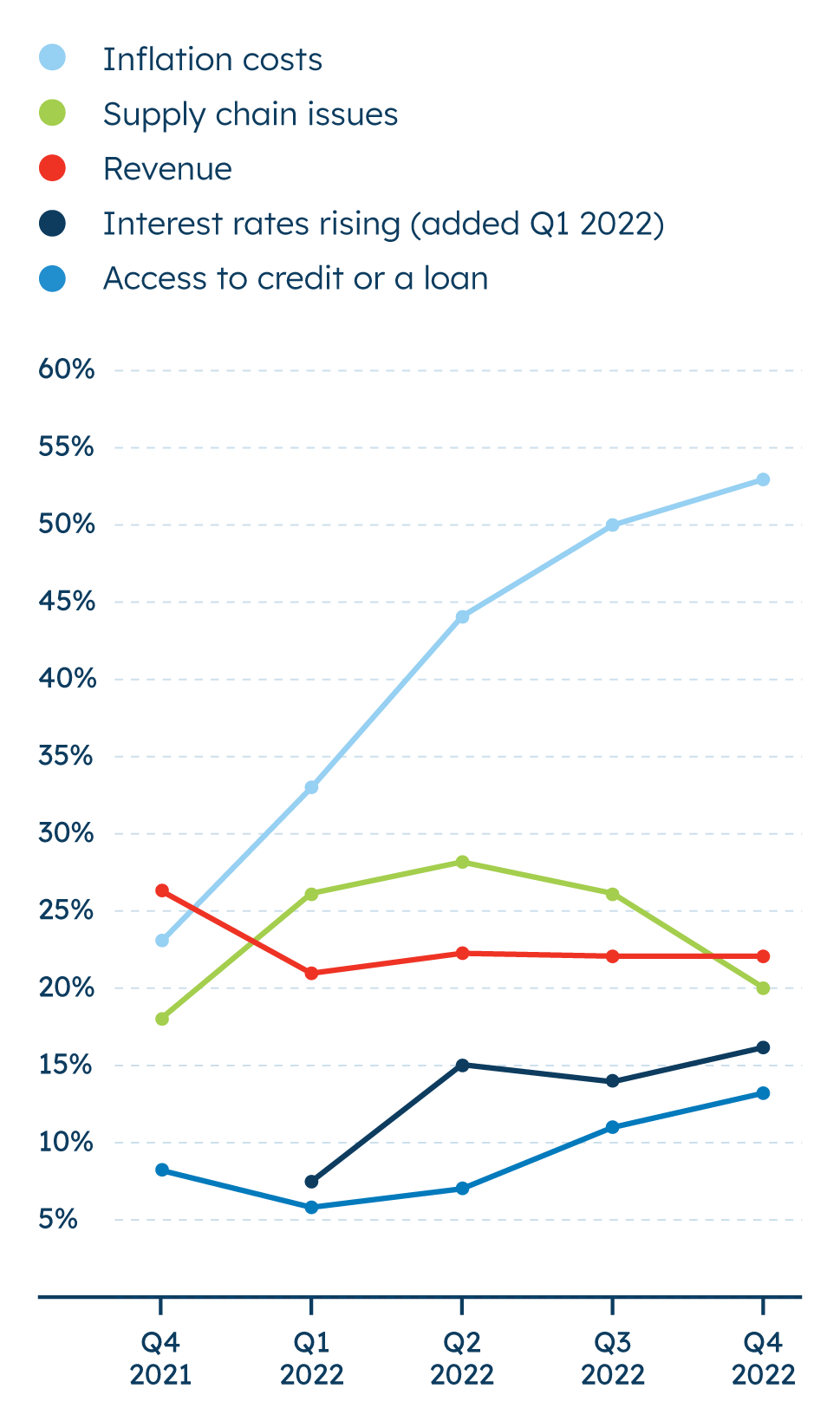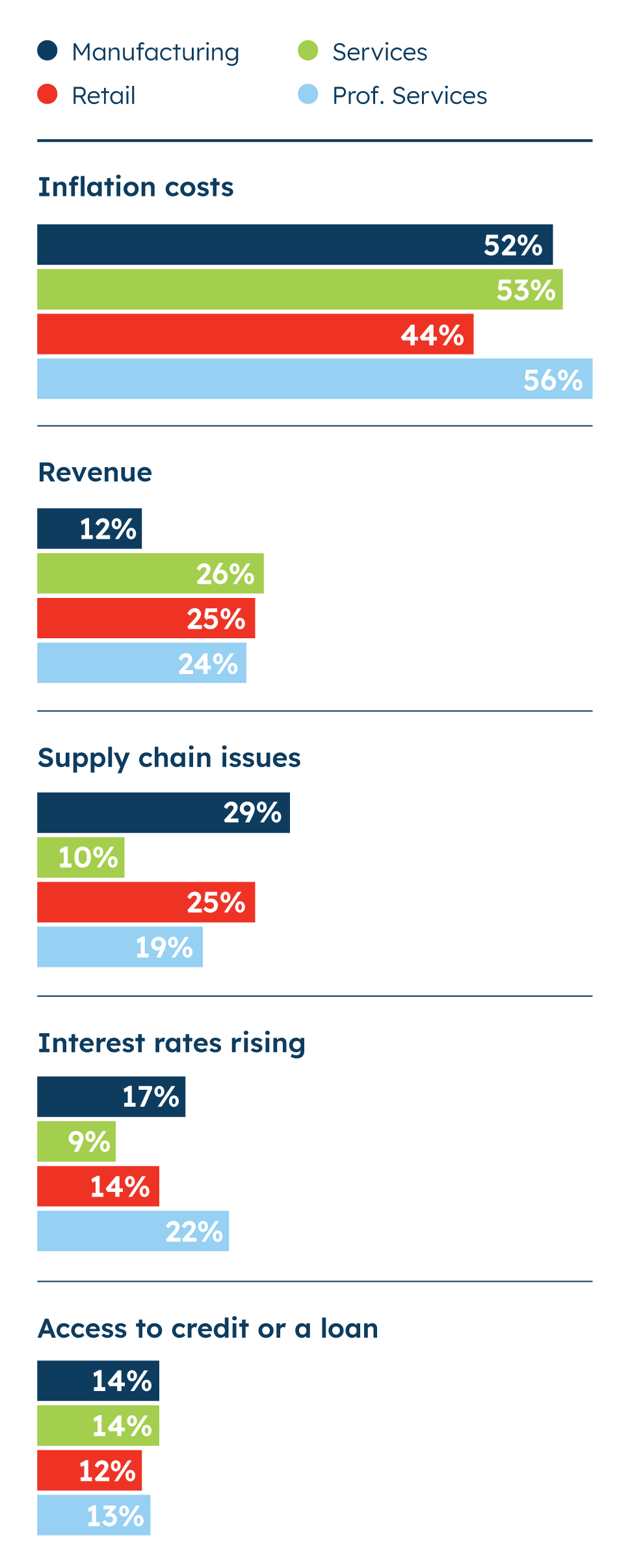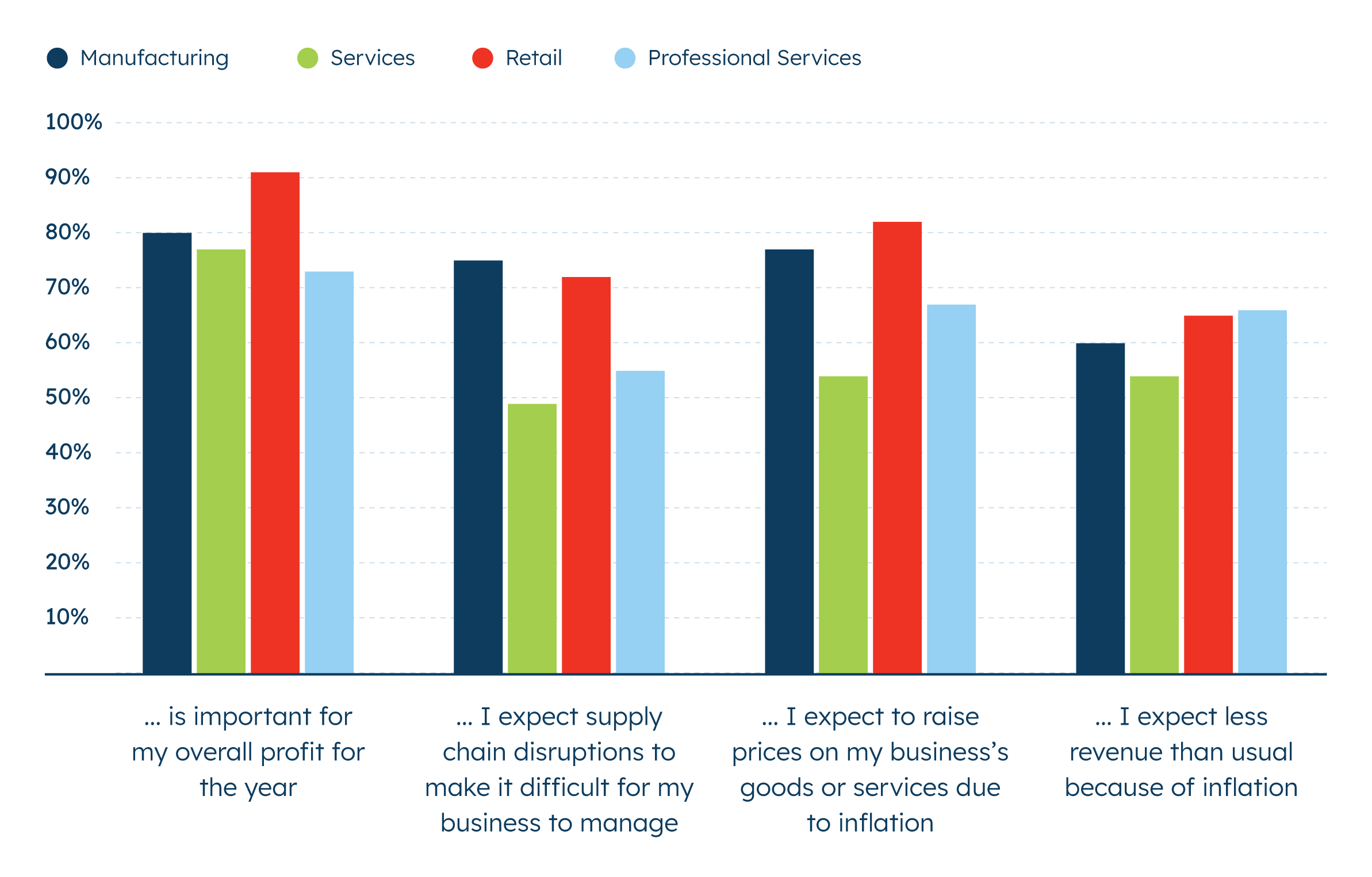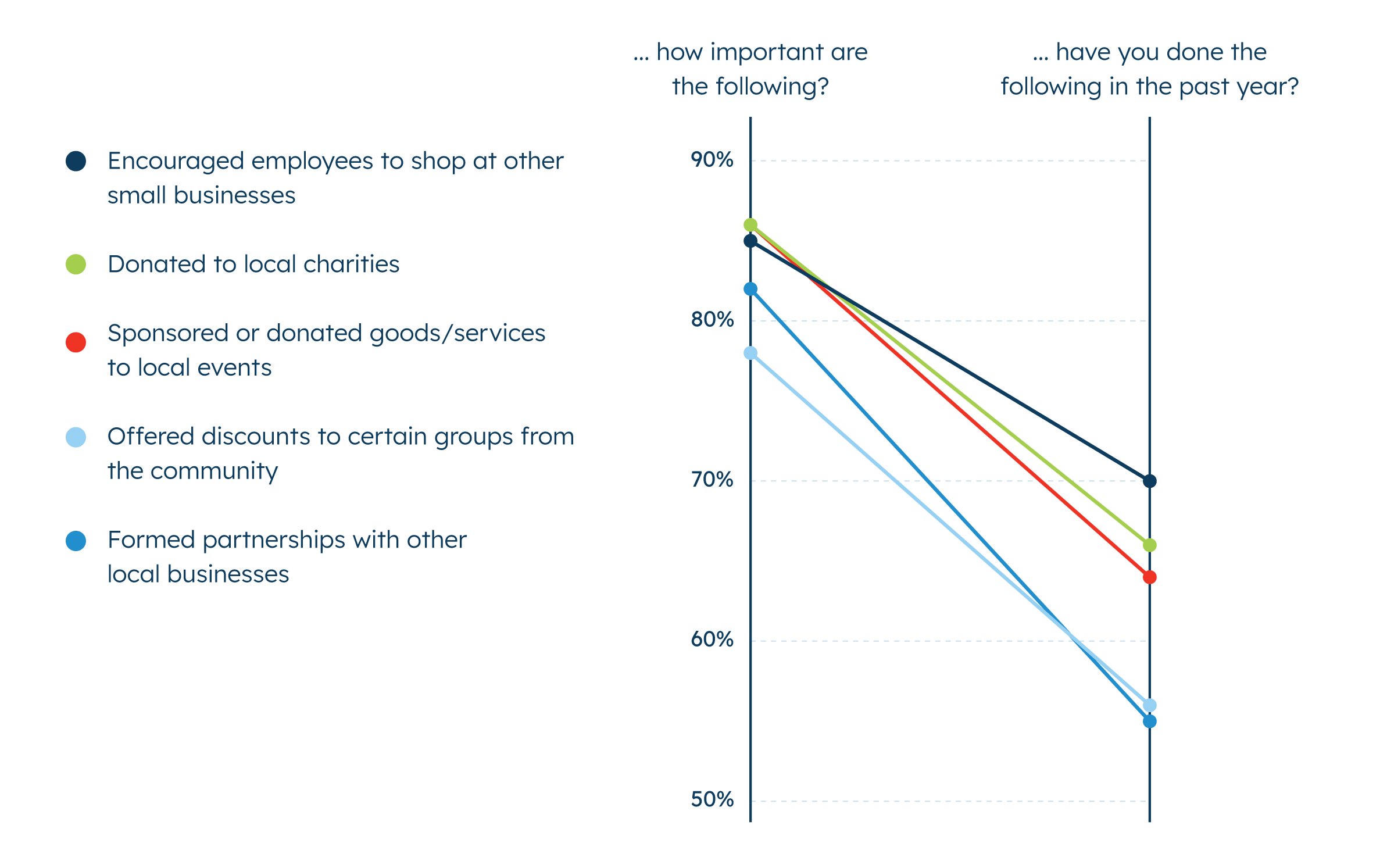Inflation Remains Biggest Challenge This Quarter and Through 2022

Inflation remains biggest concern by far for small businesses
More than half (53%) of small businesses say inflation is the biggest challenge small business owners face right now. This marks the fourth consecutive quarter that inflation tops the list of challenges and a whopping 30-percentage-point increase compared to this time last year (Q4 2021).
About 3 in 10 small businesses cited a staffing concern as one of their top challenges. Of the staffing challenges, small business owners are concerned about employee retention (11%), lack of applicants for job openings (8%), low quality of job applicants (8%), and employee well-being/morale (7%).

Building Momentum, Alexandria, VA
For the third consecutive quarter, about four in five small businesses say rising prices have had a significant impact on their business this year, which translates into a 12-percentage-point increase compared to this time last year (83% now vs. 71% in Q4 2021). Small businesses in retail (88%), manufacturing (87%), and professional services (84%) are all more likely than those in services (75%) to agree with this sentiment, though a vast majority of businesses agree across all sectors.
Similar to last quarter, inflation is the top concern for small businesses regardless of location, number of employees, or sector. For those in the professional services sector, inflationary concerns have grown since last quarter (56% vs. 43%).


Upcoming holiday season pivotal for overall profits
Against the background of rising inflation and economic uncertainty, small business owners report that this holiday season is increasingly critical for their businesses’ finances. Eight in ten (79%) small businesses say the upcoming holiday season is important for their overall profit, a nine-percentage-point increase from when this question was asked this time last year (70%).
This heightened importance is particularly true for small businesses in the retail sector, where nine in ten (91%) say the upcoming holiday season is important to their overall profit, and over half (55%) say it is very important. This marks a 16-percentage point jump in retailers saying the holidays are very important compared to Q4 2021. Additionally, small businesses run by Gen Zers or millennials (49%) are more likely than those run by baby boomers (19%) to say the upcoming holiday season is very important to their overall profit for the year, as are people-of-color-owned small businesses compared to non-POC-owned businesses (50% vs. 37%).
Despite the growing importance of the holiday season to many small businesses, concerns with supply chain disruptions are consistent with last year: three in five still think these disruptions will make it difficult for their business to manage the upcoming holiday season (61% now vs. 60% in Q4 2021). These supply chain concerns are especially high among the largest small businesses (those with 20–500 employees)—compared to the smallest (those with 0–4 employees)—and those in the manufacturing and retail sectors.
Small business owners’ top concern, inflation, is also filtering into how they view the upcoming holiday season. Seven in ten (69%) report expecting to increase the prices of goods or services this holiday season due to inflation. Also, 61% of small businesses say they expect less revenue than usual this upcoming holiday season due to inflation.
Small businesses that say this holiday season will be important—such as retailers—are especially likely to say they expect less revenue due to inflation this holiday season, and in turn, they expect to increase their prices. Specifically, of the 79% who feel the upcoming holiday season is important to their overall profits this year, two-thirds (66%) say they expect less revenue due to inflation, versus only 46% of those who say the upcoming holiday season is unimportant.

Park City Lodging, Park City, UT

Despite lingering economic concerns, most small businesses give back
This quarter’s survey finds that small businesses not only say that businesses should give back, but also that the majority have actively given back to their communities in the past year.
Ninety-three percent of small businesses say they have taken at least one of the specific actions when asked about how they engage with their community in the past year. These include:
• Seven in ten (70%) small businesses saying they have encouraged employees to shop at local small businesses.
• Two-thirds of small businesses (66%) saying they have donated to local charities over the past year.
• 64% saying they sponsored or donated goods/services to local events.
• 56% saying they offered discounts to certain groups within the community, like teachers or veterans.
When asked about the importance of specific individual community engagement activities, most small businesses say each one is important. However, there is a gap between the proportion of small businesses that say each community engagement activity asked about is important and those that have done each in the past year. Actions that are seen as most important—like encouraging employees to shop small, donating to local charities, or sponsoring goods/services to local events—are also the actions that business owners most often report actually implementing over the past year.

Overall, the vast majority of small businesses believe that businesses should give back to their local communities (91%) and that their own business has a clearly defined mission that includes giving back to their local community (80%).
Small businesses run by Gen Zers or millennials are often more likely than those run by baby boomers to say they have taken action to engage with their community in the past year. For example, while about two in five small businesses run by Gen Zers or millennials (43%) say they have offered company-wide day(s) of service, only about three in ten (32%) run by baby boomers say the same. Businesses run by Gen Zers or millennials are also more likely to strongly agree that small businesses should give back, in general.
The smallest small businesses (those with 0-4 employees) are less likely than those with more employees to say they have taken most of the actions asked about in the past year. Similarly, male-owned small businesses are less likely than female-owned small businesses to say they have donated to local charities (62% vs. 73%, respectively) or have sponsored or donated goods or services to local events (61% vs. 70%, respectively).


